The Regista: Midfield masterclass and attacking freedom helped Madrid beat Bayern
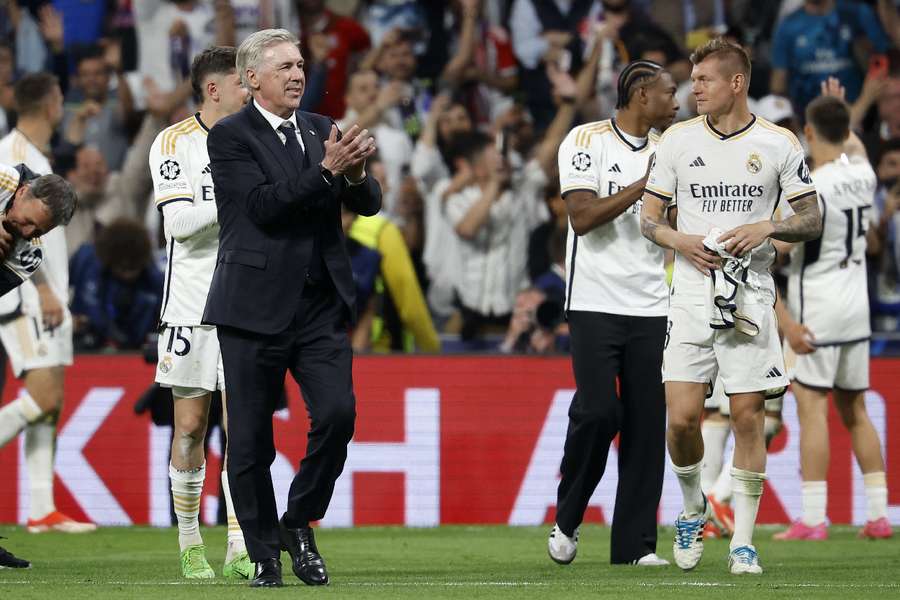
Whilst this game had a combination of individual brilliance (Alphonso Davies' goal for Bayern), defensive mistakes (Manuel Neuer's error after having a phenomenal game) and late VAR controversy, we are still going to look into the tactical side of this game, and what Madrid did to give themselves a shot at their 15th (yes 15TH!) Champions League title.
Midfield overload
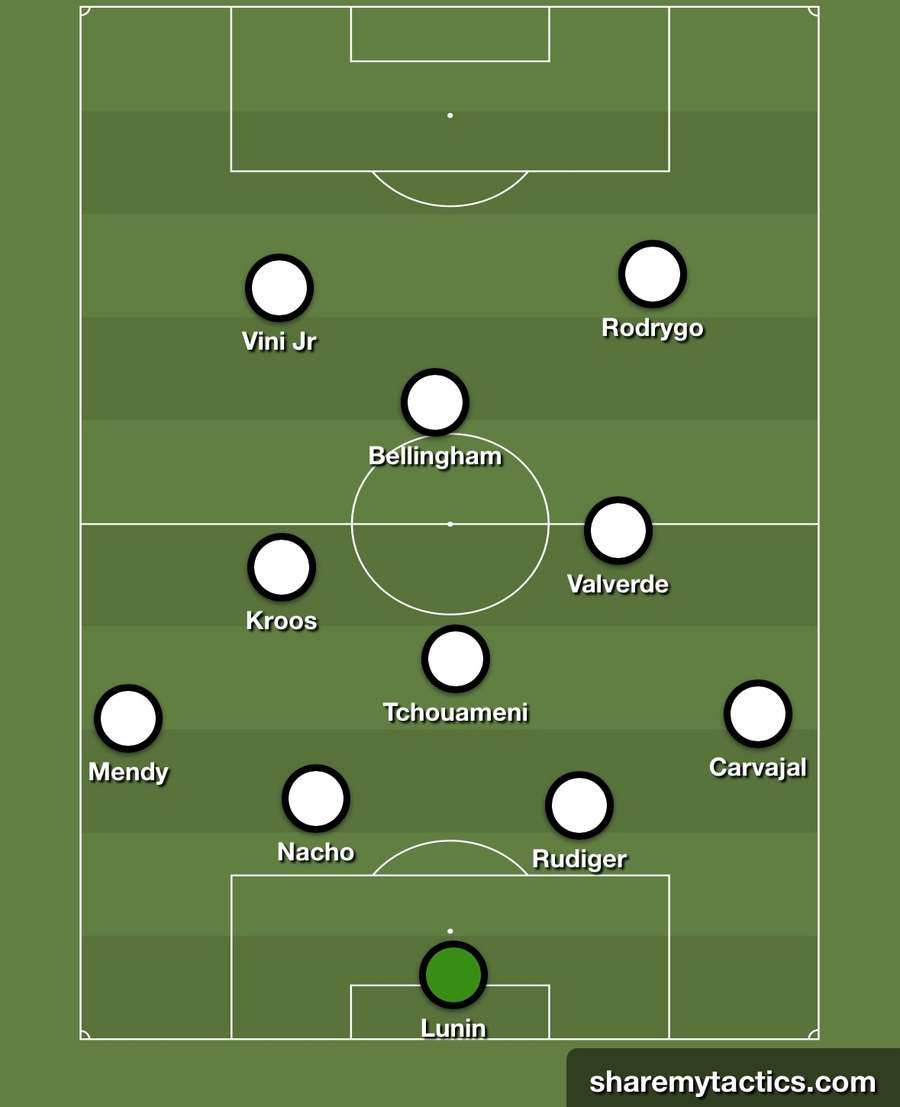
This first image shows how Real Madrid set up on paper in this 4-1-2-1-2 diamond.
However, some would view this as a 4-4-2, and this is how Madrid played out of possession, pressing in a 4-4-2 shape with Bellingham as a left midfielder and Fede Valverde as a right midfielder.
You could even see Toni Kroos and Aurelien Tchouameni pressing Konrad Laimer and Aleksandar Pavlovic high up the pitch to keep them facing their own goal, which would see one of Valverde or Bellingham drop slightly more deep and narrow to account for the space behind the midfield pivot when pressing.
But it is Madrid's approach in possession that draws so many eyes, and Carlo Anceloti's philosophy centred around relationism.
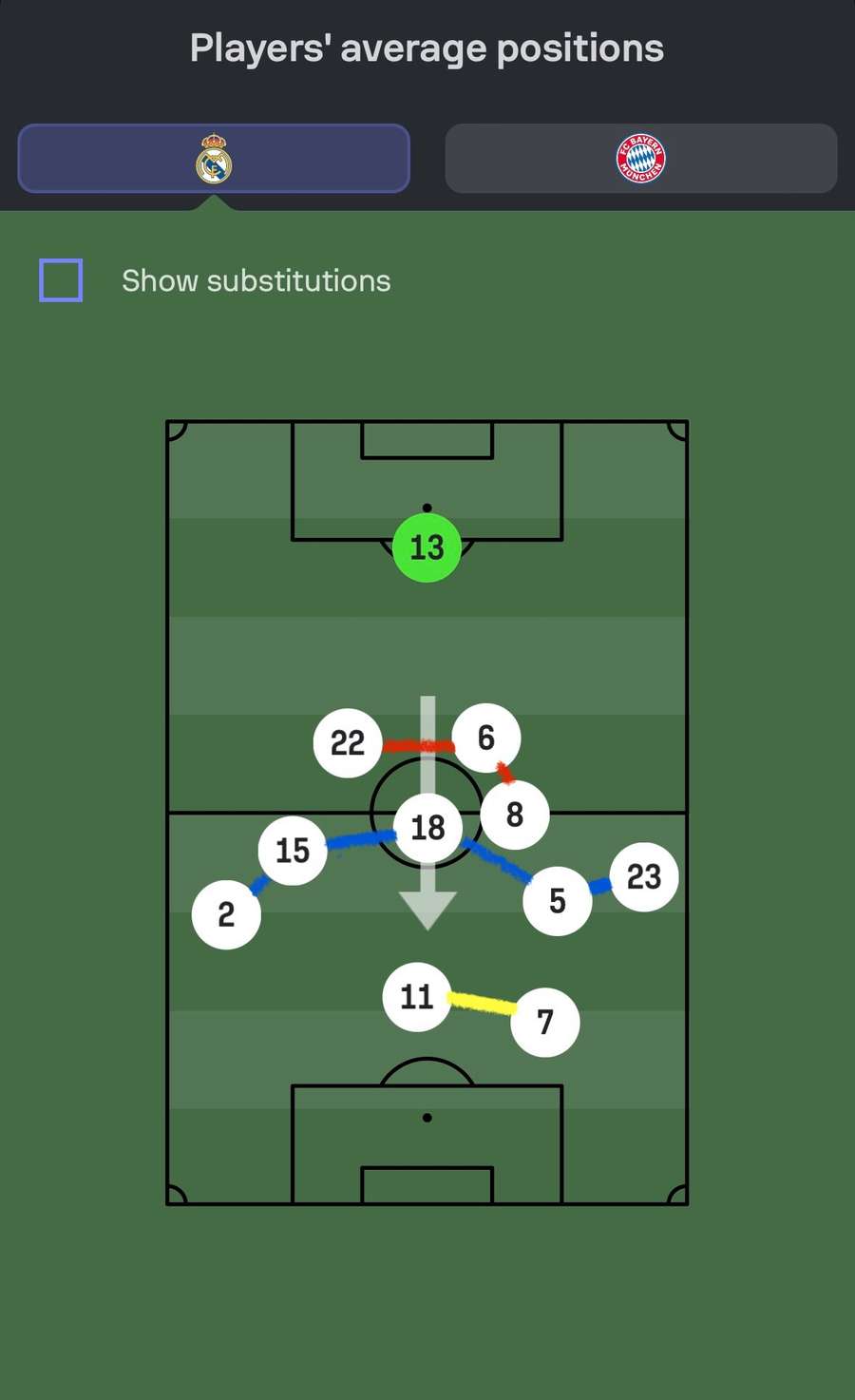
In this image, you can see the average positions of the Real Madrid team before substitutions, and what you begin to see is this almost 3-5-2 forming, with Kroos (a pivot player) dropping in at left centre back to get on the ball, Bellingham and Valverde dropping in with Tchouameni to make a midfield three, and the two fullbacks often holding width.
This would be seen in the early build-up phases, forming a 3-3 shape (formed by the two centre-backs and four central midfielders whilst the fullbacks offered width) giving Madrid that deep overload in central areas to move the ball with one-touch passing and progressing play as a unit into the opposition half.
Once progressed, the two forwards (Vinicius Junior and Rodrygo) would have the licence to link up, roam wherever in the front line and receive the ball in pockets of space. Bellingham would then join in from midfield, making runs in behind or linking play with the forwards to form attacking central triangles.
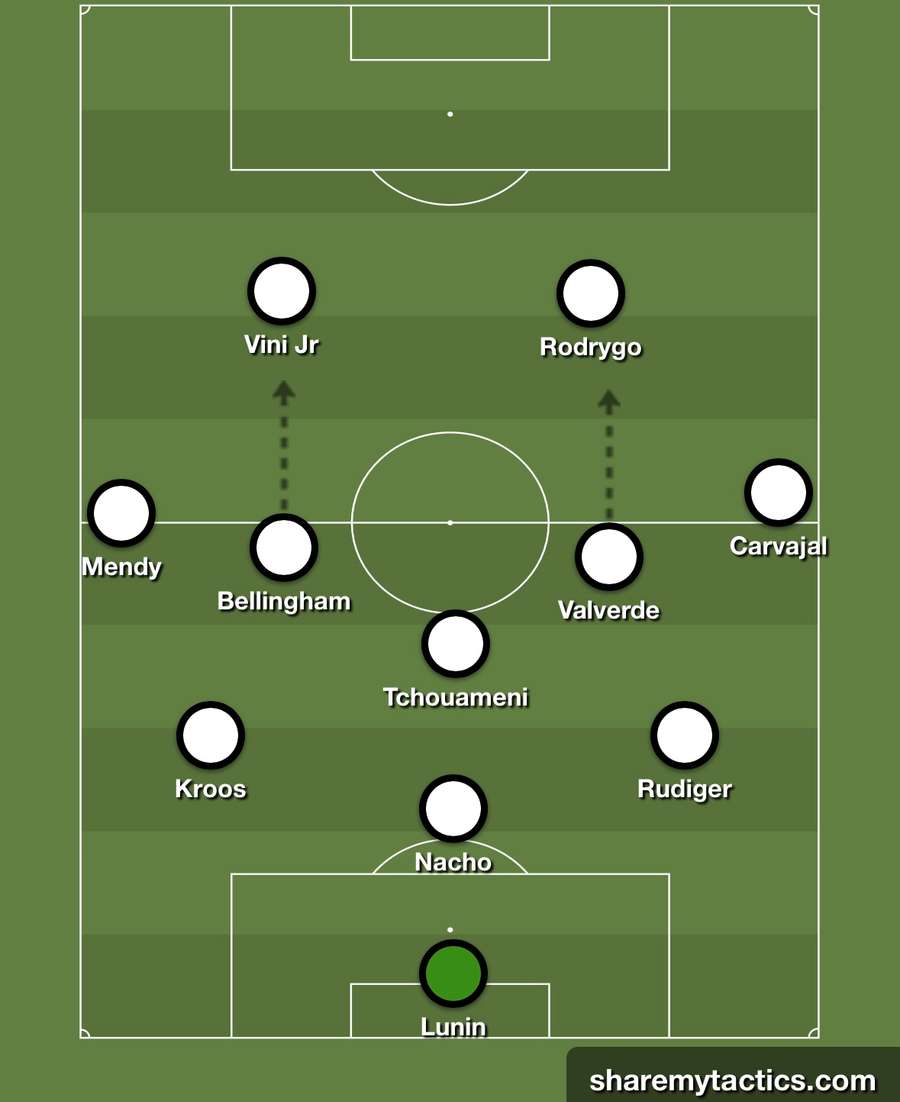
The method was clearly to have a strong base shape, allow the likes of Kroos to get on the ball and affect the game, but also find their key men in the attacking third and give them the opportunity to express themselves and make things happen.
This was seen with Vini's 12 dribbles attempted, completing seven of them, and Rodrygo's four attempted, completing two of them. Vinicius was causing Bayern a lot of harm on that left-hand side, drifting out wide to receive the ball and run at Joshua Kimmich. Therefore, Madrid proceeded to look for Vini in those areas and let him attack the fullback at every opportunity.
And it was actually from a deflected Vini shot that the equaliser came for Joselu, following the strike and reacting first for the rebound effort.
The other pattern worth mentioning which further alludes to the relationist approach of Ancelotti is the fluidity between Valverde and Dani Carvajal in build-up.
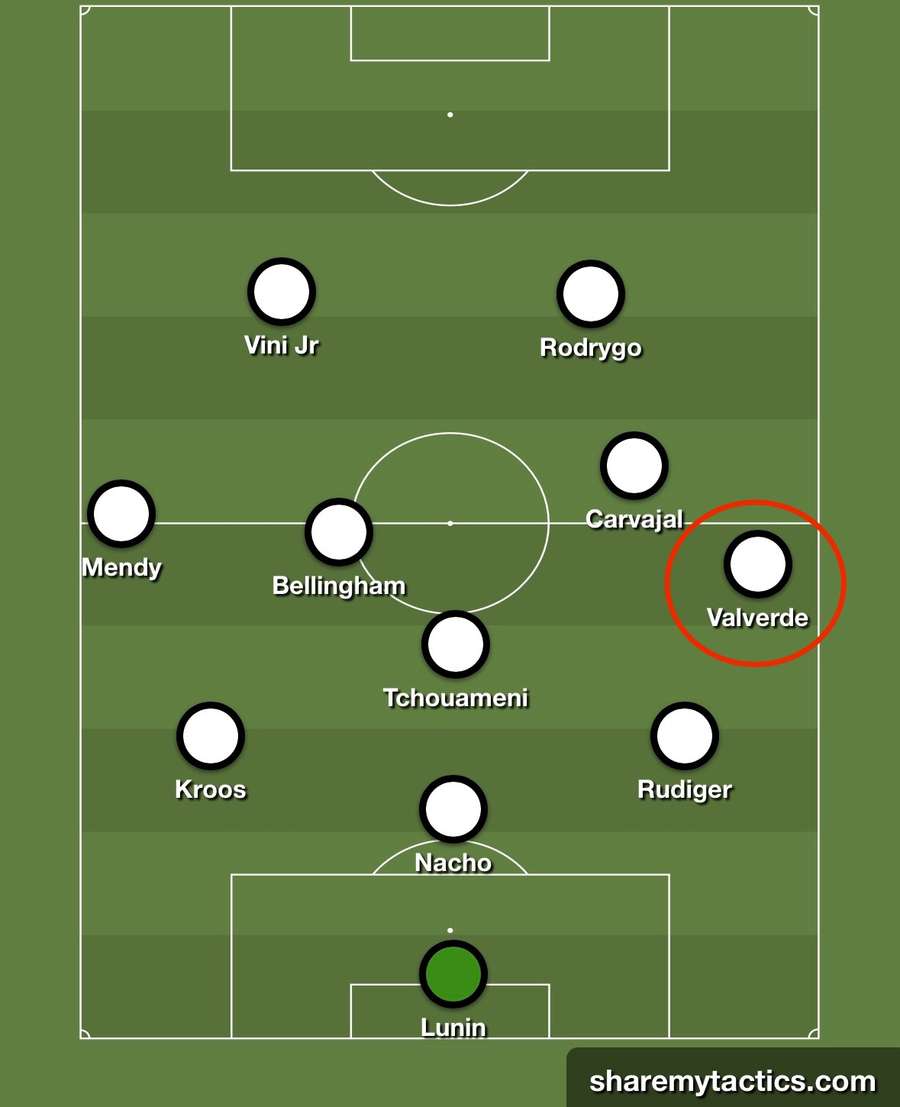
There were a number of occasions Valverde would drift wide to offer as a receiver, and this would determine the movement of Carvajal, who wasn't afraid to invert and even stray into the attacking half space to offer passing options.
These interchangeable movements are something familiar all over the pitch for Real Madrid, with Vini and Rodrygo popping up all over to receive in pockets of space, Bellingham having a lot of licence to drop deep or run behind, and even Tchouameni (the number 6 essentially) sometimes wandering into the half spaces to fill gaps during build-up.
Conclusion
To conclude this game, and summarise Real Madrid as a whole, their base structure presents itself to filling zones and ensuring they have numerical superiority for passing options in build-up.
However, after this, the freedom for individuals to interpret the game and put their print on it comes to their individualism and relationships with one another on the pitch. Ancelotti encourages his players to express themselves, help one another by creating passing options and make things happen, and it is their responsibility to move accordingly in tandem to cover the zones around the pitch.
It is important to give Joselu his props when concluding this game too. As mentioned earlier, Joselu was playing for Stoke back in 2015, also had a stint at Newcastle from 2017-2019, and is now scoring a brace in the Champions League semi-final to fire Real Madrid into the final, having been 10 minutes away from being dumped out.
The 34-year-old striker played nine minutes coming from the bench, taking two shots, converting both and writing his name in Real Madrid history (even more so should they go on to win the competition on June 1).
